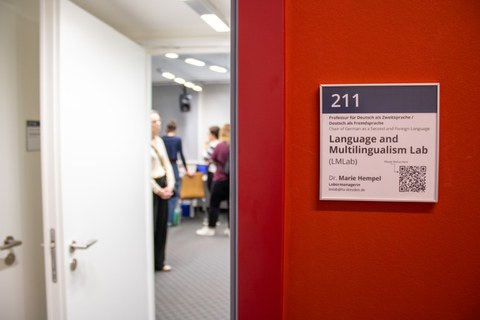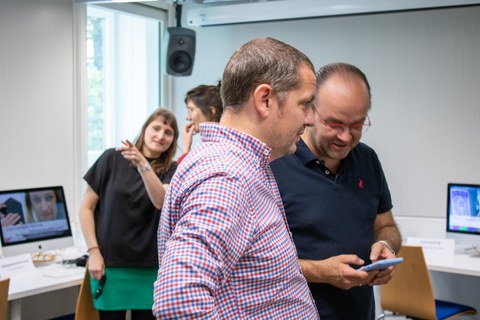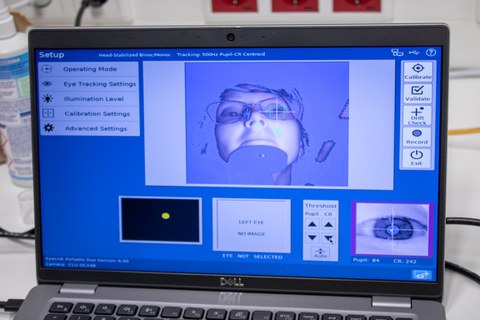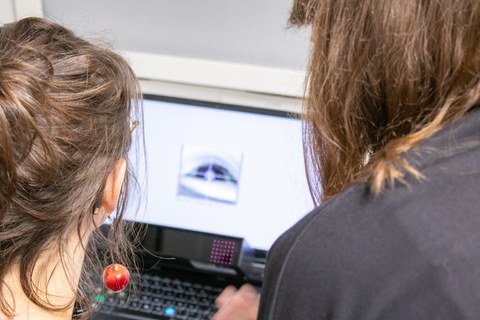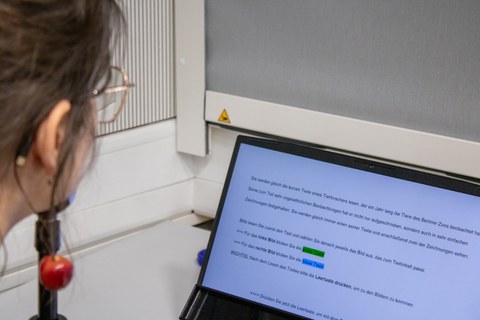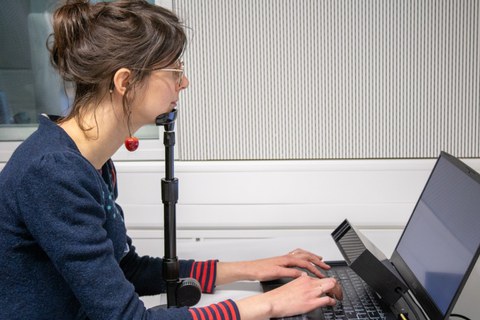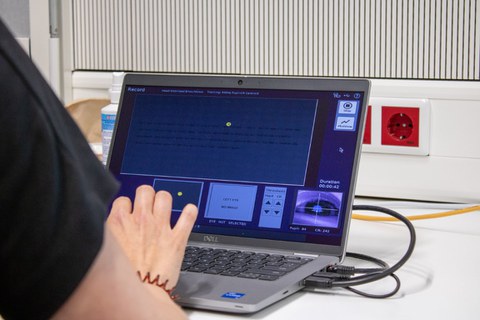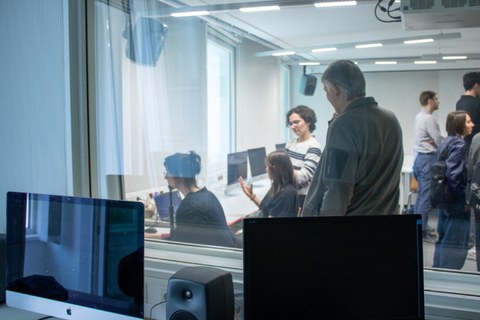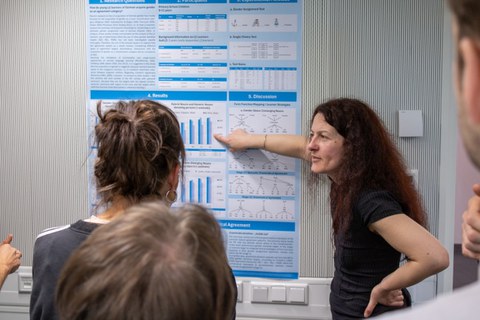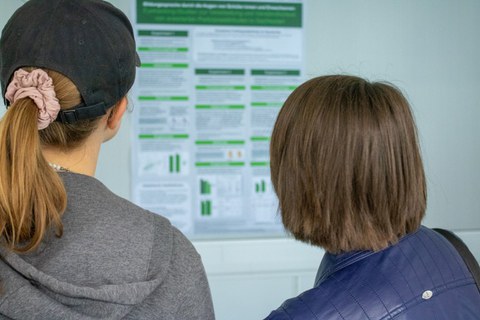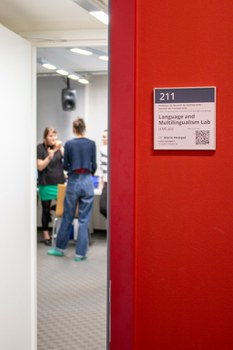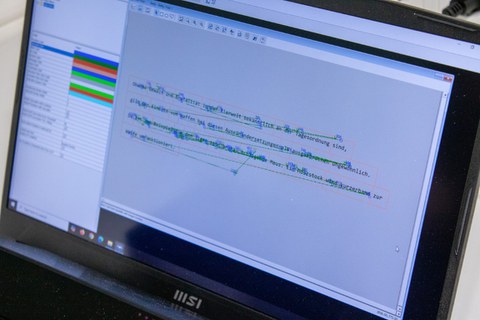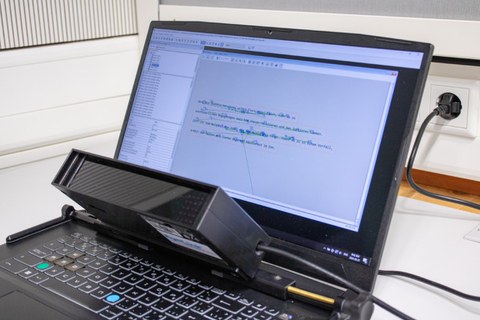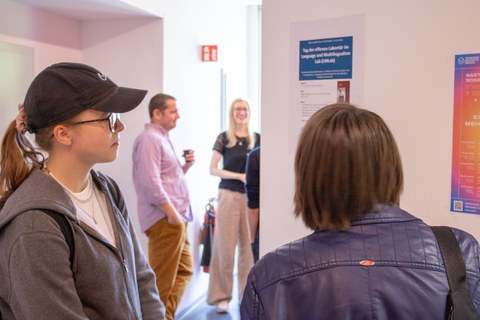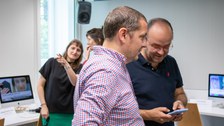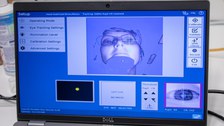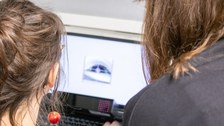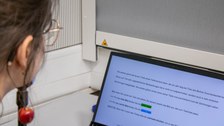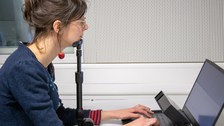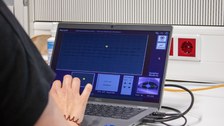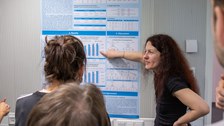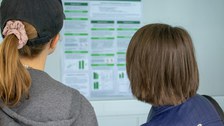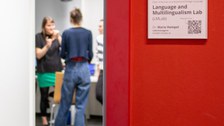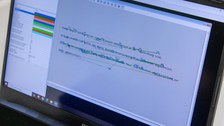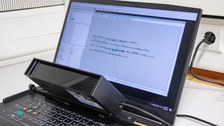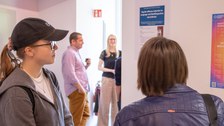May 22, 2025
New Language and Multilingualism Lab: How eye tracking can help with learning German
On May 21, 2025, Professor Anja Binanzer and Lab Managers Dr. Marie Hempel and Laetitia Brand opened the Language and Multilingualism Lab (LMLab) in August-Bebel-Straße. In the new laboratory at the Chair of German as a Second Language / German as a Foreign Language (DaZ/DaF), basic research on language acquisition and language processing of speakers of German as a first, second and foreign language is to be carried out with the help of eye tracking. Interested staff and students were able to find out exactly how this works at the dies academicus open lab day and try out eye tracking for themselves.
With the establishment of the LMLab, Prof. Binanzer and Dr. Hempel are the first at the Faculty of Linguistics, Literature and Cultural Studies to use the method of eye movement measurement, i.e. eye tracking, in their research. Specifically, they are investigating, for example, which grammatical phenomena in German cause problems in language processing - both speakers of German as a first language and speakers of German as a second and foreign language. For this purpose, the test subjects are shown texts containing complex grammatical constructions on a laptop. With the help of a camera calibrated to the pupils of the test subjects, the researchers then look at how long they fixate on the sentence parts in question and how often their gaze jumps back to the difficult construction. The close link between a person's eye movement behavior and the simultaneous cognitive processing of the person being looked at means that processing processes can be recorded in real time that are not accessible using other methods such as surveys or tests.
This is basic research, the results of which can help to answer very different research questions: the real-time data generated by eye tracking provides information about how language is processed cognitively. Comparing different groups of speakers, e.g. adults and children or people with German as their first language and learners of German as a second or foreign language, can reveal differences in language processing. It can also be investigated what influence certain first languages have on the processing of German grammar - for example, do people with Russian as their first language find it easier to learn German than people with Arabic as their first language? Such findings can then be used to further develop the didactics of German both with regard to the teaching of German as a second and foreign language, but also with regard to grammar teaching in German schools. Prof. Binanzer can imagine collaborations with schools as well as adult education.
The two researchers are currently looking for volunteer test participants to set up a test subject database. They are looking for people who speak German as a first, second or third language. With regard to studies with multilingual speakers, we are particularly looking for participants who speak first languages that are particularly widespread in Germany. The Teaching Center for Languages and Regional Studies (LSK) at the TUD will support you in this, but unsolicited applications are also welcome. Interested parties are welcome to contact Dr. Marie Hempel or Prof. Anja Binanzer directly or find out more here.
Contact:
Language and Multilingualism Lab (LMLab)
Lab manager: Dr. Marie Hempel
Email:
https://tu-dresden.de/gsw/slk/germanistik/daz-daf/lmlab
Prof. Anja Binanzer
Chair of German as a Second Language / German as a Foreign Language (DaZ/DaF)
Email:
https://tu-dresden.de/gsw/slk/germanistik/daz-daf

